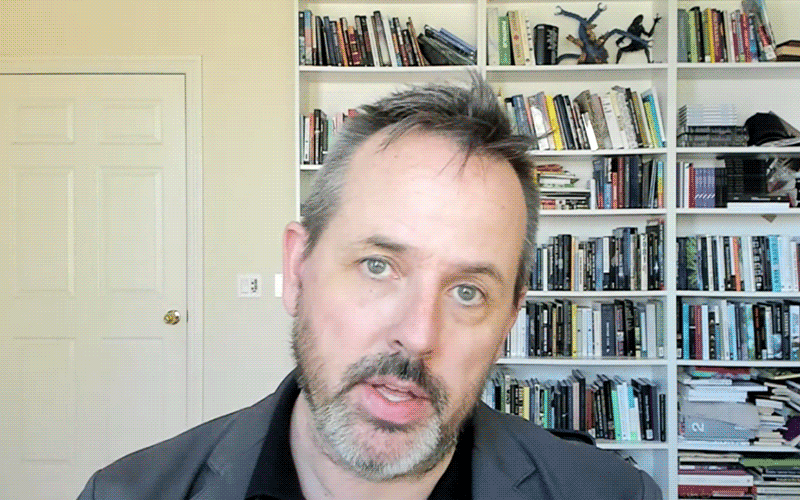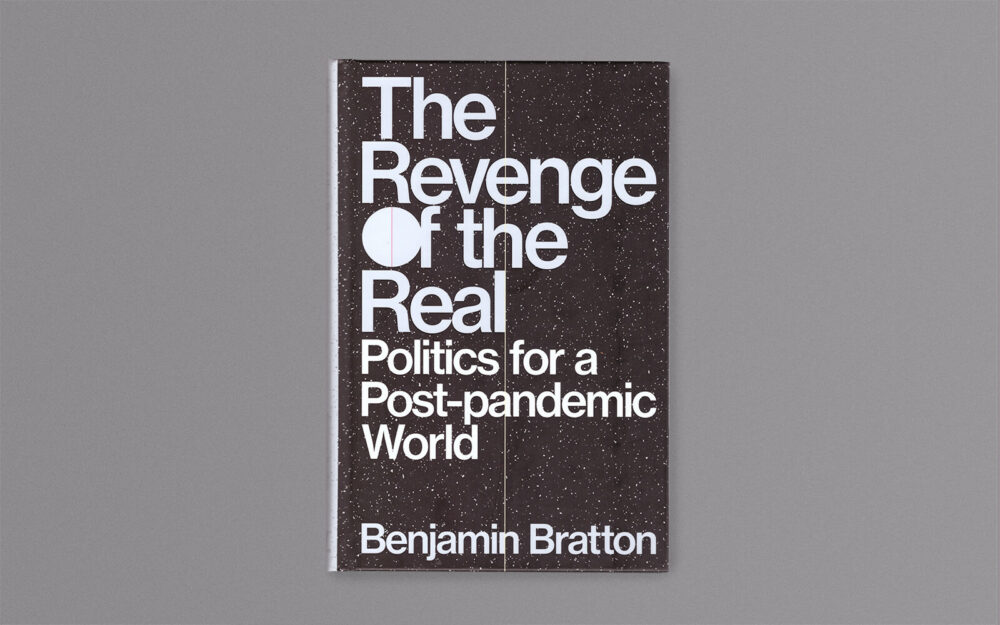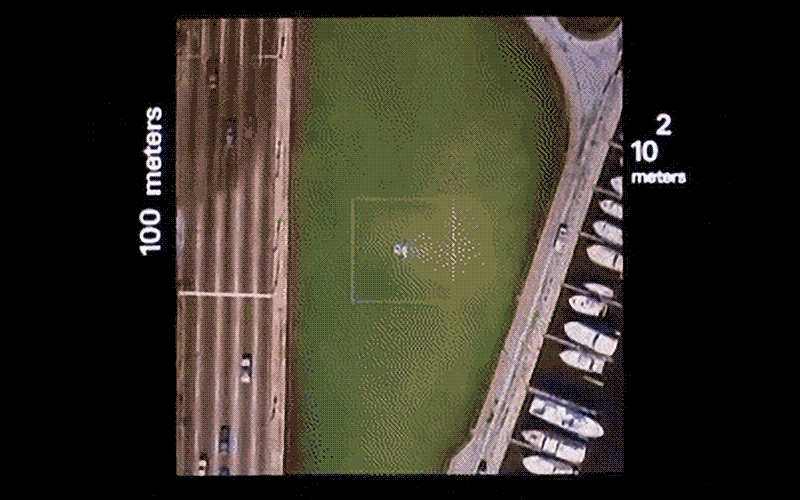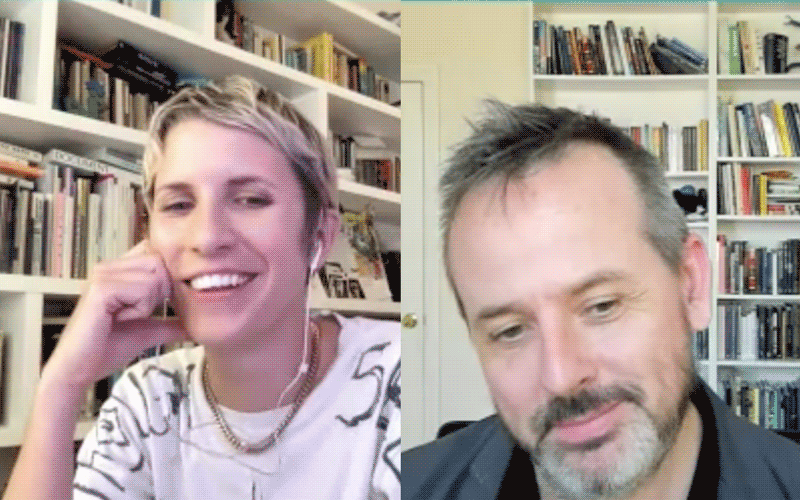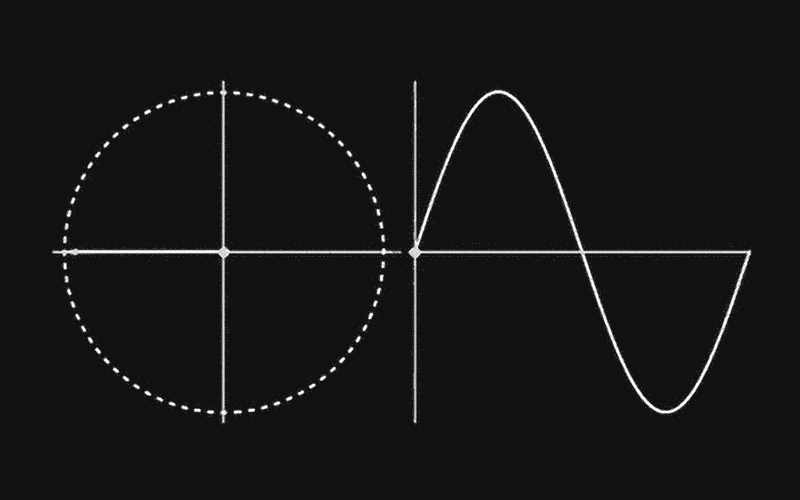MUTEK Recorder: EPISODE 08—Benjamin Bratton
The MUTEK Recorder
Episode 08: Benjamin Bratton
Speakers:
Claire L. Evans
Benjamin Bratton

Profile:
Benjamin Bratton
Benjamin Bratton is Professor of visual arts at UCSD in San Diego, and author of The Stack (2016) and The Revenge of the Real (2021), which, respectively, schematize systems of scale and governance after Big Tech, and consider what politics in a post-pandemic world could be. Bratton is also the Program Director for The Terraforming, an initiative at Moscow’s Strelka Institute that tasks design students with tackling the radical transformations required for Earth to remain a viable host for life.
Soundbite:
“Planetary, or planetarity, implies many different things. One of them is the scale of the astronomic condition of the earth—the 4.7 billion years or so over which biomes and ecologies, species and phyla have emerged. This includes us, and our peculiar capacity for sapience. And our peculiar capacity to construct machines that mimic that sapience. All of that is part of what a planet does.”
Benjamin Bratton, defining ‘planetarity’
Soundbite:
“Recording for me is, like most writers, being a packrat of ideas that get gathered and sorted, and rearticulated. Like jokes, they get told over and over until they are just right and then you move onto other ones. And they get arranged and sequenced, and become books.”
Benjamin Bratton, on how ideas are collected, iterated, and ‘exorcised’
Book:
Benjamin Bratton’s follow-up to The Stack (2016), The Revenge of the Real (2021) is a polemic about the abject failures of governance that we’ve witnessed during COVID-19. Drawing on the rise of populism and the resulting ‘mask wars’ that politicized what should have been uncontestable science-driven policy, Bratton argues for a global polity that does not reject ‘reality’ but honours it through a compassionate collectivism that transcends the borders of individual countries. Looking beyond the pandemic, he critiques the prevalent knee jerk response to surveillance culture and challenges us to think beyond data ‘extraction’ from our lives, and instead harness planetary computation to build and, crucially, act on new communal archives (and models) to mitigate the climate crisis.
Soundbite:
“What we call ‘planetary scale computation,’ all of the satellites and data centres and capacity for modelling and simulation, have provided another kind of epistemological accomplishment: the understanding of climate change as a concept. It requires the recording, and archiving, of millions and millions of data points that become a model, that can be interpreted.”
Benjamin Bratton, on how the concept of climate change emerged from computation
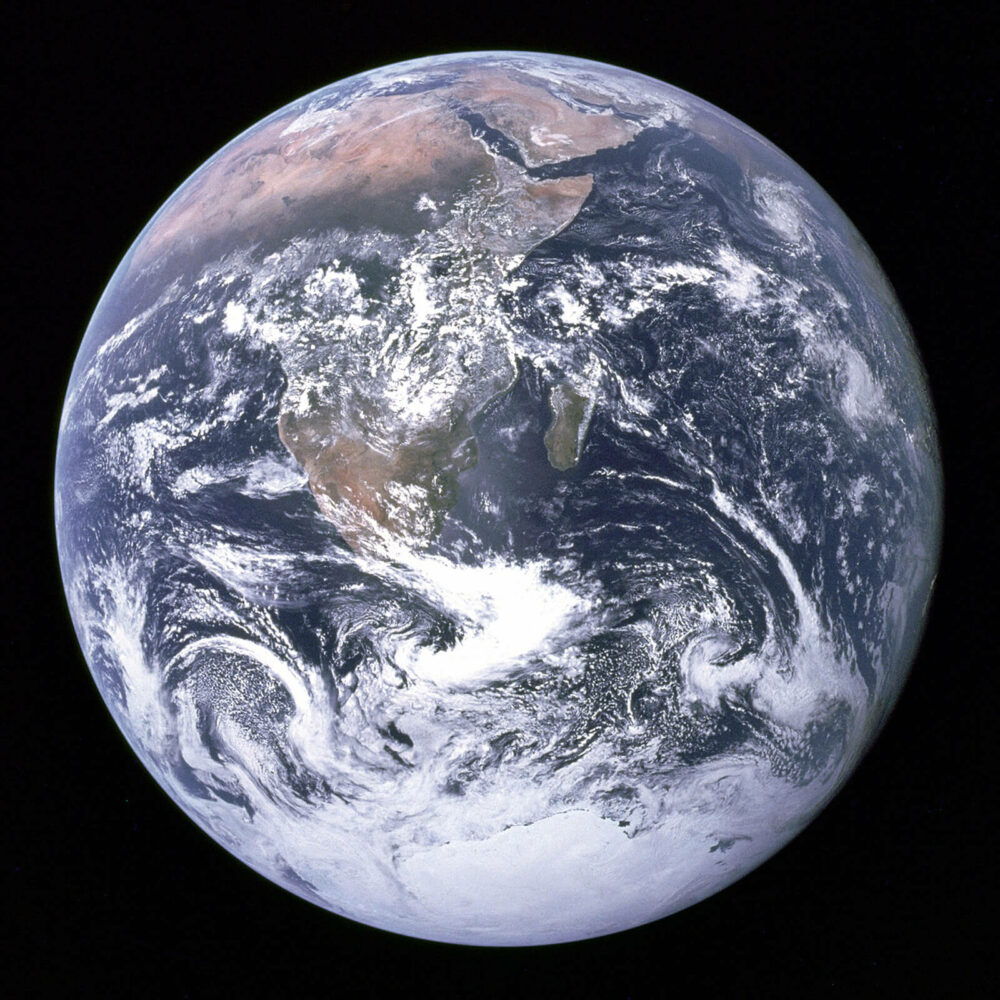
Reference:
The Blue Marble
Taken on December 7, 1972, by Apollo 17 astronauts Harrison Schmitt and Ron Evans while en route to the Moon, The Blue Marble is one of the most circulated photographs in history. Benjamin Bratton notes “what Frank White called the Overview Effect—it preceded Yuri Gagarin, it preceded not only the Blue Marble but humans in space. It was conceived and announced in advance in the 1940s and ‘50s.” Even before we had the iconic image we had an idea about how it would stir our imagination about planetary unity.
Soundbite:
“It’s important to understand planetary and planetarity not as a metonym for the global, but as something multi-scalar: the molecular matters as much as the atmospheric in scale. Unlike the logic of Eames’ Powers of Ten, where all the scales stay in the right place as you zoom in, reality has scales that penetrate one another and overlap.”
Benjamin Bratton, on how the interrelations between different ‘levels’ of reality are what makes it so complicated
Reference:
A film “dealing with the relative size of things in the universe,” Powers of Ten might be Charles and Ray Eames most enduring contribution to visual culture. Capping a multi-year collaboration with IBM, the film was completed in 1977 and produced to help (better) establish a sense of understanding of the magnitude of known existence—from the subatomic through the “limit of human vision,” a zoomed-out view of the universe “where whole galaxies of stars are seen as one.” Starting from the human scale of an idyllic Chicago picnic the camera zooms out light years to the macro, and back down to the micro—perhaps the most ambitious cinematography in the history of film.
Soundbite:
“I feel like The Blue Marble image has lost a lot of its power. Flat earth conspiracies, climate denial, evangelicals—we know the age of the planet and yet plenty of people refuse to believe it.
Could a sapient planet have the will to refuse to look at itself?”
Claire L. Evans, on the tactical ignorance that is unfortunately so common today
Soundbite:
“The paradox of this moment is that the models of reality we have are unable to act back upon reality because other models of reality that we have deep cultural investment in are hogging all the oxygen in the room. And we have a body count to prove it.”
Benjamin Bratton, on the undeniable COVID-19 metric that measures our collective shortcomings
MUTEK Recorder
MUTEK RecorderExplore more of "MUTEK Recorder:"
→ HOLO.mg/stream/
→ HOLO.mg/mutek-recorder/
Claire L. Evans
Claire L. Evans is a Los Angeles-based writer and musician exploring ecology, technology, and culture. She is the author of Broad Band: The Untold Story of the Women Who Made the Internet (2018) and the singer of the Grammy-nominated pop group YACHT. A prolific essayist, her writing has recently appeared in outlets including GROW, MIT Technology Review, and The Verge.
